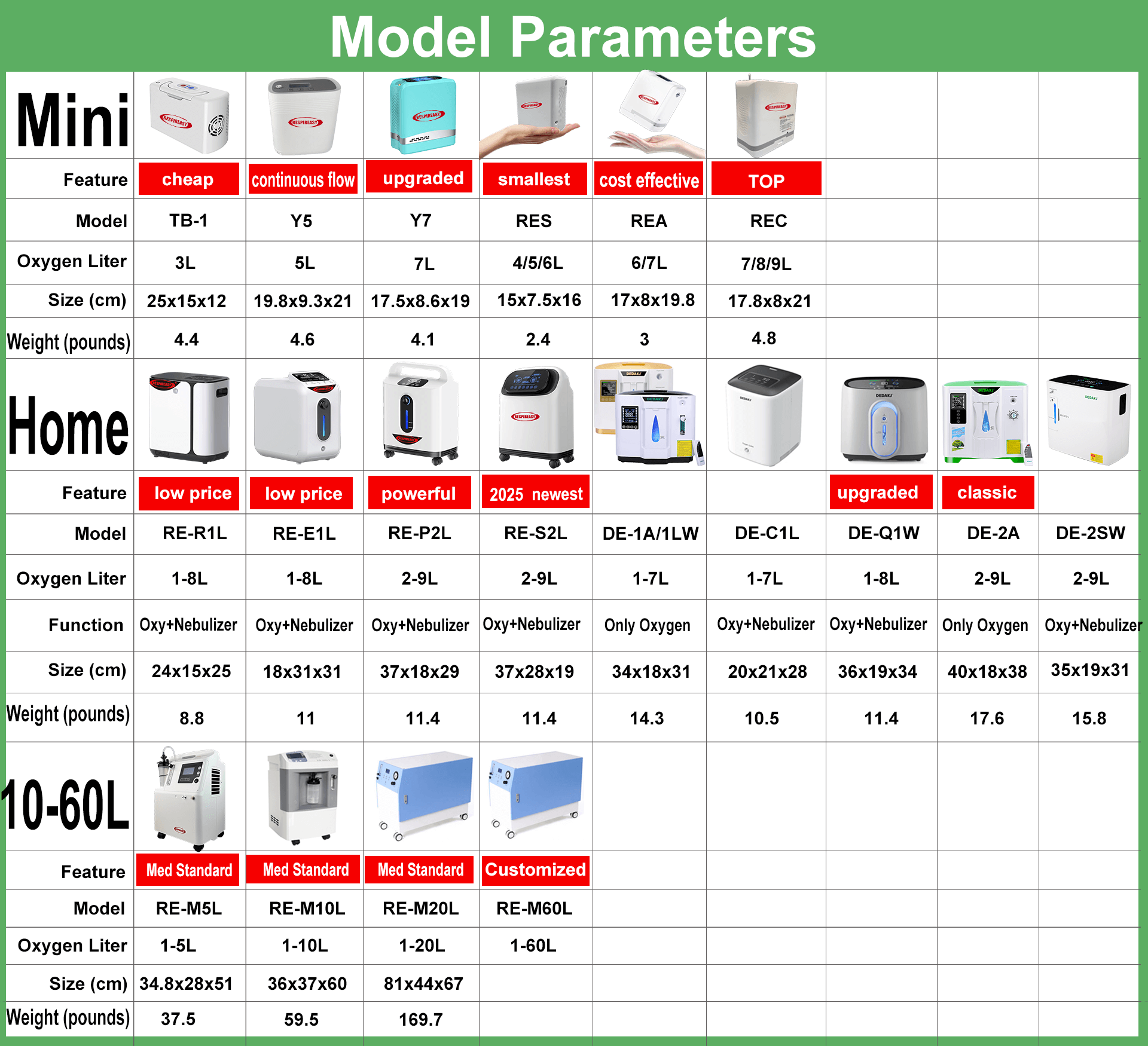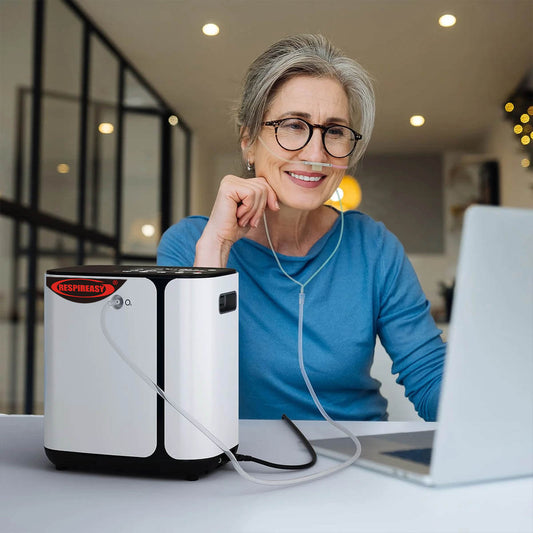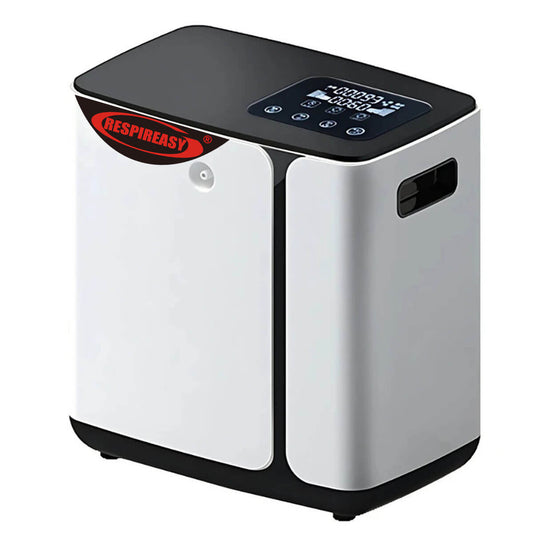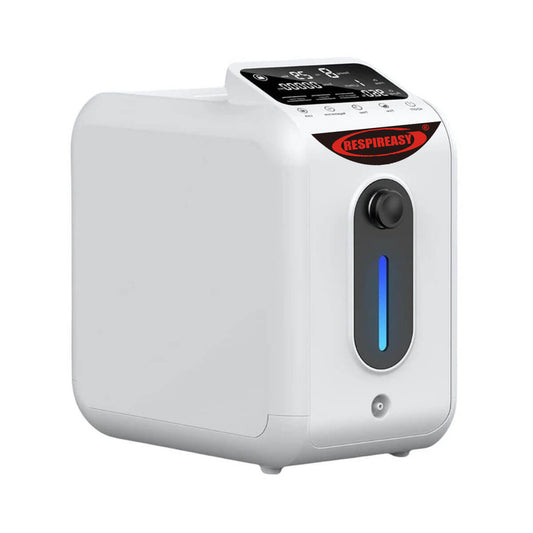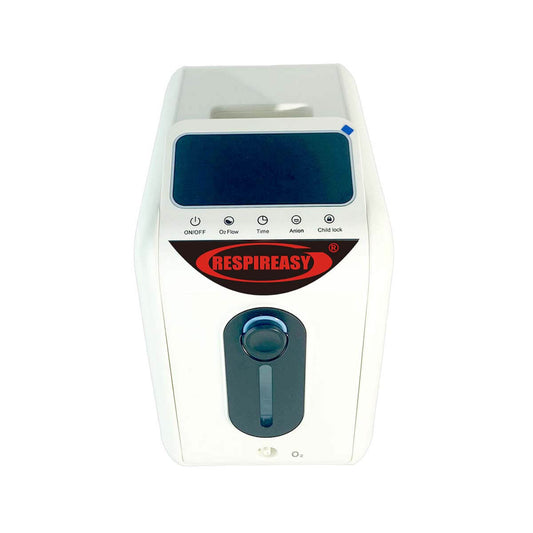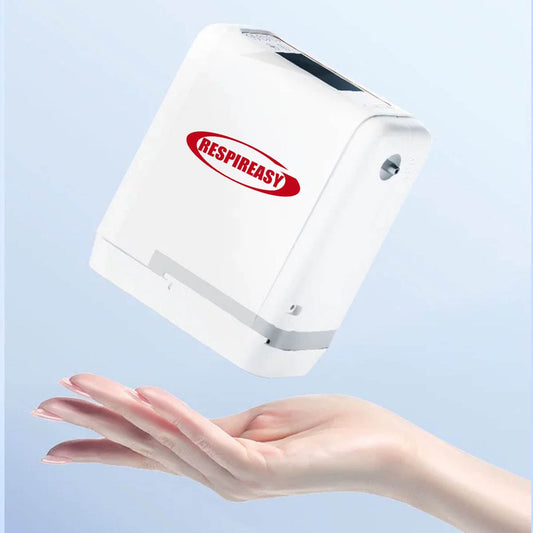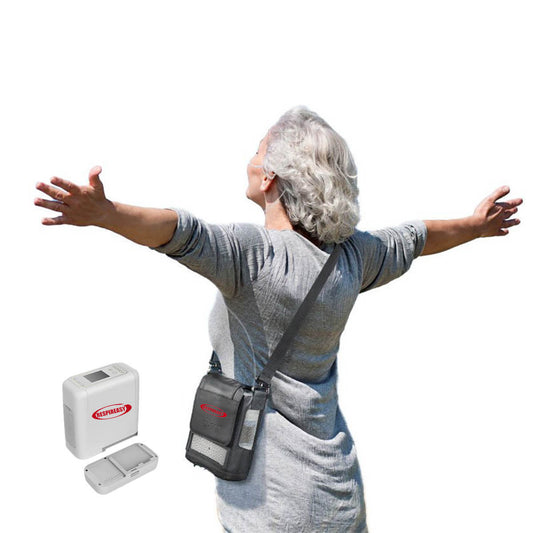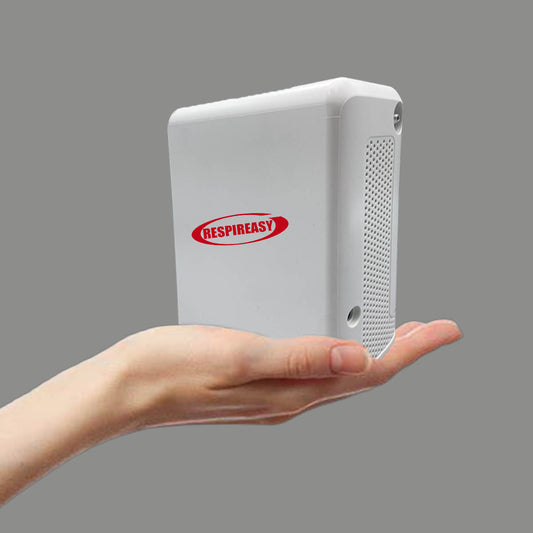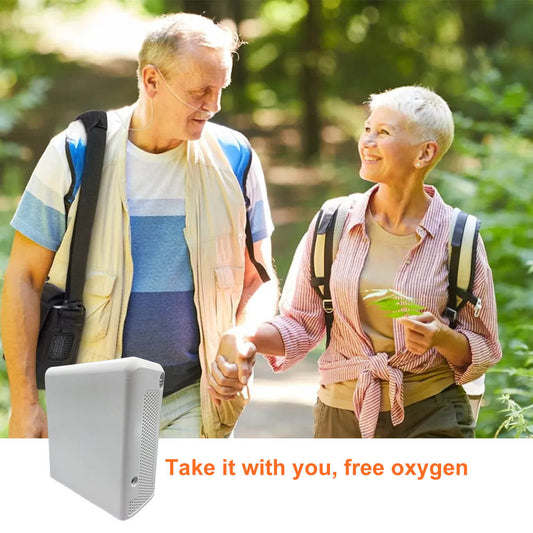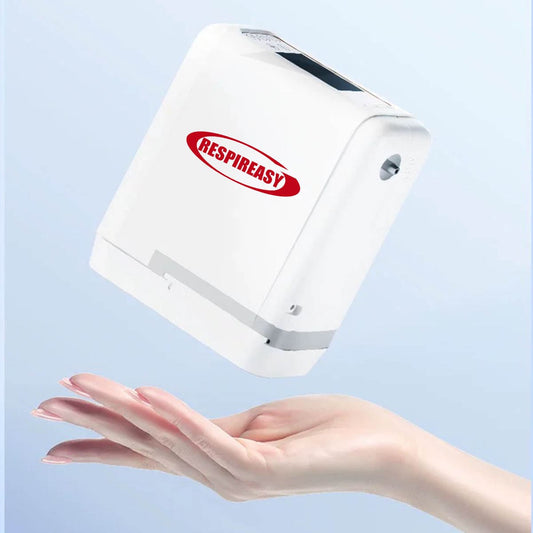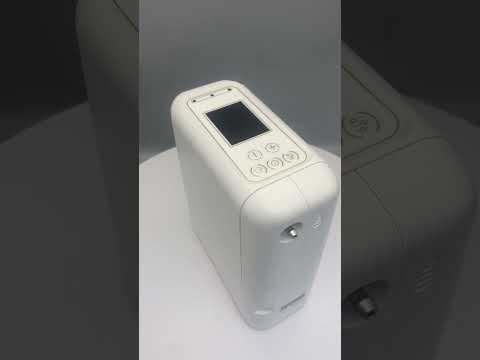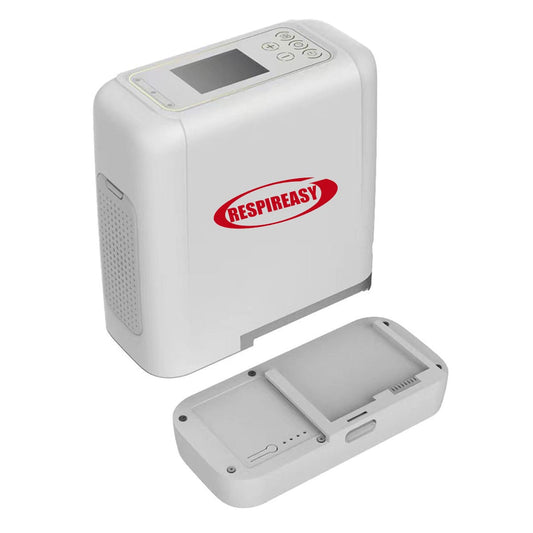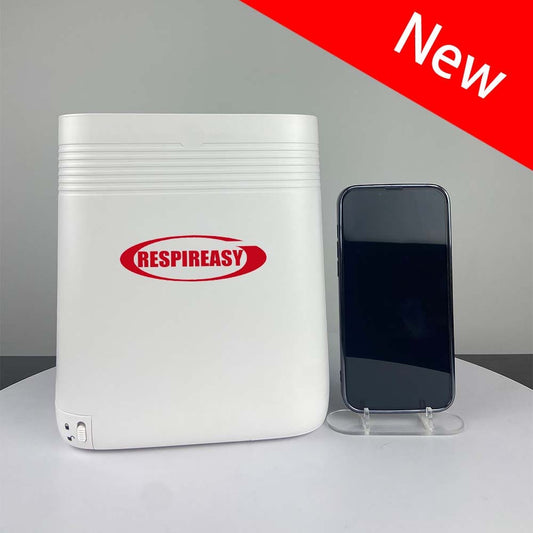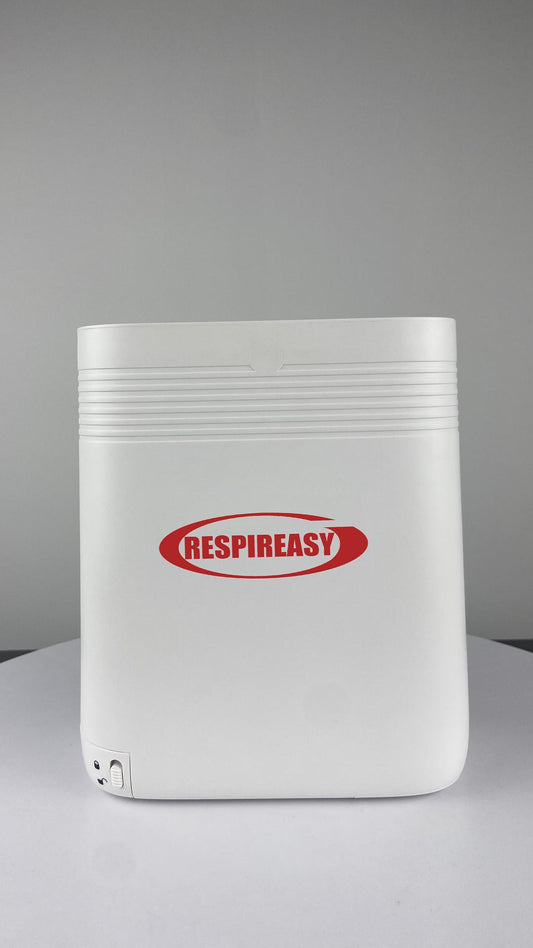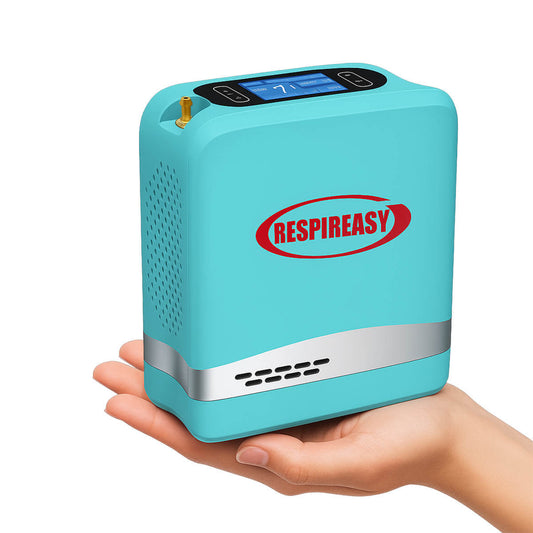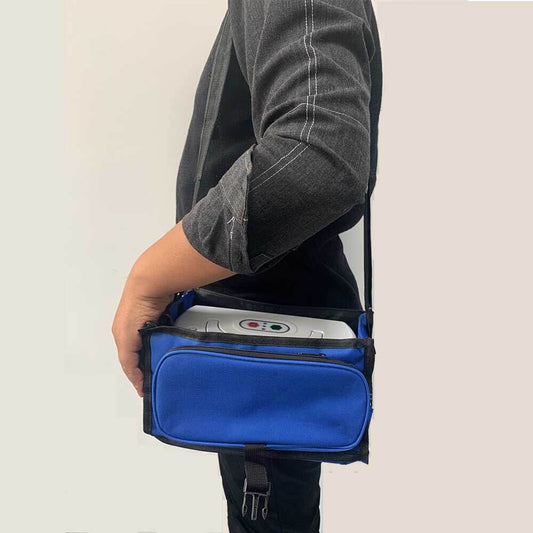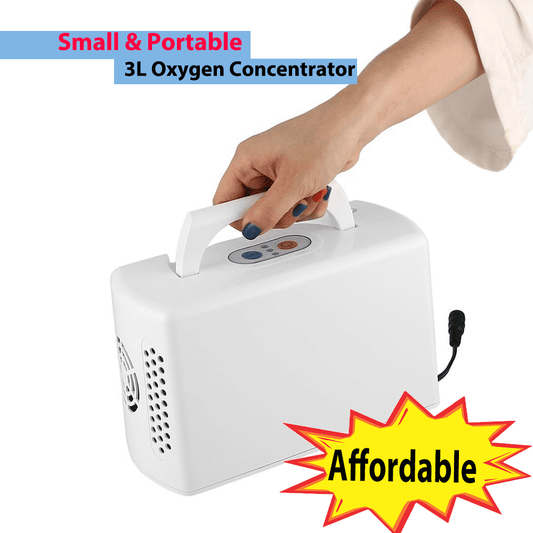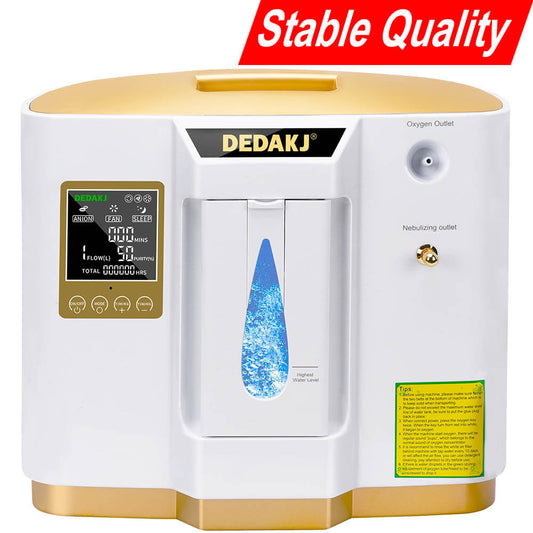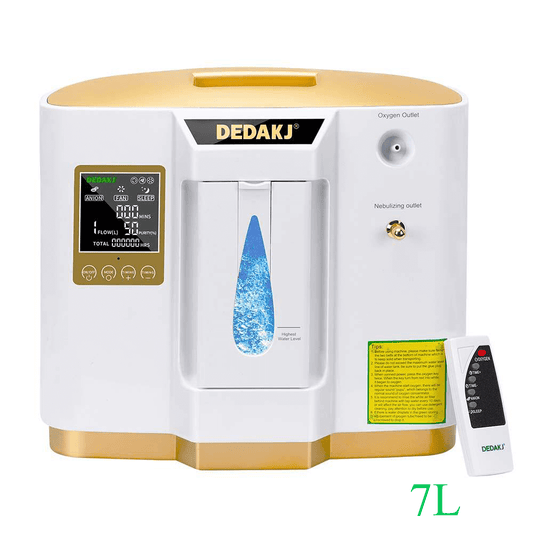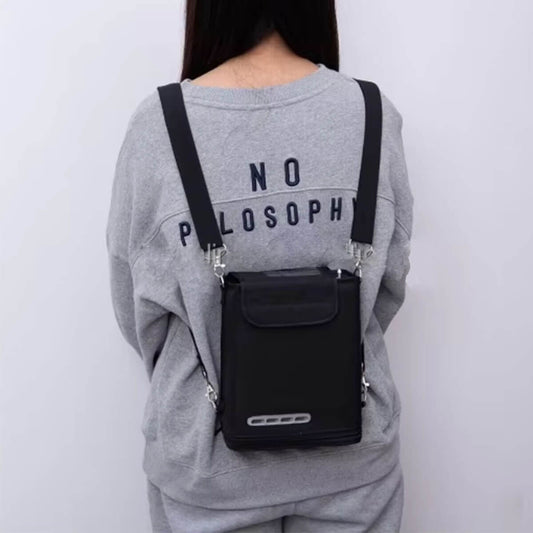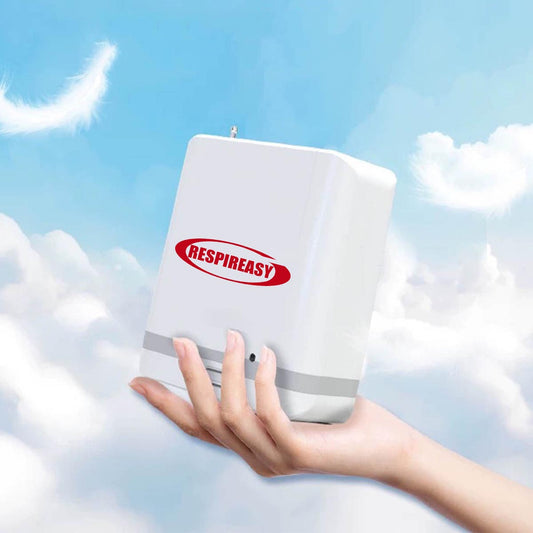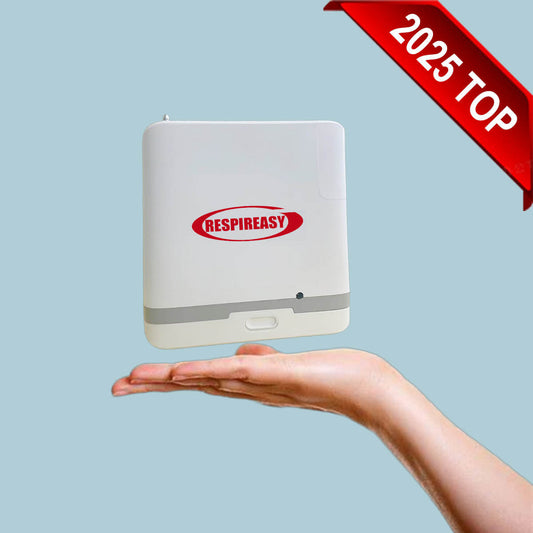Año 2025 10-Ventajas y desventajas de los últimos concentradores de oxígeno
 Los concentradores de oxígeno se han convertido en un dispositivo indispensable para muchas personas que necesitan terapia de oxígeno suplementario. Estas máquinas ofrecen una forma eficiente y conveniente de suministrar oxígeno sin la necesidad de tanques de gas voluminosos, lo que facilita la vida a las personas con afecciones respiratorias crónicas. Sin embargo, como cualquier dispositivo médico, los concentradores de oxígeno tienen sus propias ventajas y desventajas. Comprender estas ventajas y desventajas puede ayudar a los pacientes respiratorios y a los cuidadores a tomar una decisión informada sobre si este tipo de sistema de suministro de oxígeno es la opción adecuada para sus necesidades.
Los concentradores de oxígeno se han convertido en un dispositivo indispensable para muchas personas que necesitan terapia de oxígeno suplementario. Estas máquinas ofrecen una forma eficiente y conveniente de suministrar oxígeno sin la necesidad de tanques de gas voluminosos, lo que facilita la vida a las personas con afecciones respiratorias crónicas. Sin embargo, como cualquier dispositivo médico, los concentradores de oxígeno tienen sus propias ventajas y desventajas. Comprender estas ventajas y desventajas puede ayudar a los pacientes respiratorios y a los cuidadores a tomar una decisión informada sobre si este tipo de sistema de suministro de oxígeno es la opción adecuada para sus necesidades.
Ventajas de los concentradores de oxígeno
· Portátiles: Los concentradores de oxígeno están diseñados teniendo en cuenta la movilidad del usuario. Ya sea una versión de escritorio para uso doméstico o un modelo pequeño y liviano adecuado para uso móvil, estos dispositivos permiten que los pacientes se muevan libremente sin estar atados a un dispositivo fijo. Especialmente aquellos diseñados para ser portátiles, los pacientes pueden llevarlos consigo para facilitar los viajes y las actividades diarias.
· Rentable a largo plazo: si bien la inversión inicial en un concentrador de oxígeno puede ser alta, generalmente se vuelve más económico con el tiempo. Los tanques de oxígeno tradicionales requieren recargas periódicas, lo que puede aumentar rápidamente los costos. Por el contrario, los concentradores de oxígeno extraen el oxígeno del aire ambiente, lo que elimina la necesidad de transportar o recoger el tanque y los costos asociados.
· Proporcionar un suministro continuo de oxígeno: a diferencia de los tanques de oxígeno, que pueden agotarse y deben reemplazarse o rellenarse, los concentradores de oxígeno funcionan tomando aire ambiente, eliminando el nitrógeno y entregando oxígeno casi puro al usuario. Este proceso garantiza que el usuario tenga un suministro continuo de oxígeno mientras el dispositivo esté en funcionamiento y haya energía.
· Eliminación de la necesidad de recargar los tanques de oxígeno: una de las principales ventajas de utilizar un concentrador de oxígeno es que elimina la necesidad de recargar frecuentemente los tanques de oxígeno. Esto no solo reduce los desafíos logísticos y los costos recurrentes asociados con las recargas, sino que también garantiza que el usuario tenga una fuente de oxígeno más predecible y estable.
· Adecuados para uso doméstico: Los concentradores de oxígeno están diseñados para integrarse perfectamente en el entorno doméstico. No ocupan mucho espacio y muchos modelos son estéticamente agradables. Su diseño fácil de usar garantiza que los pacientes puedan utilizarlos sin grandes conocimientos técnicos. Ya sea que se utilicen de forma continua durante el sueño o de forma intermitente durante el día, su adaptabilidad los hace ideales para entornos residenciales.
· Funcionamiento silencioso: una de las ventajas notables de los concentradores de oxígeno modernos es su funcionamiento silencioso o casi silencioso. Esto garantiza que el usuario y quienes lo rodean no se vean perturbados por el ruido durante el funcionamiento. Esto es especialmente beneficioso cuando se utiliza de noche, lo que garantiza un sueño ininterrumpido.
· Bajo mantenimiento: los concentradores de oxígeno están diseñados para durar y requieren un mantenimiento mínimo. Aparte de una limpieza ocasional o el reemplazo del filtro, no se requiere un mantenimiento intensivo regular. Esto reduce los costos de atención a largo plazo y la carga de trabajo tanto para el usuario como para el cuidador.
· Menor riesgo de agotamiento del oxígeno: con los tanques de oxígeno tradicionales, siempre existe el riesgo de que se agote el suministro de oxígeno, especialmente si la recarga se demora o es problemática. Los concentradores de oxígeno, por otro lado, producen oxígeno de forma continua a partir del aire ambiente, lo que reduce en gran medida el riesgo de agotamiento del oxígeno. Esto brinda tranquilidad a los usuarios, ya que saben que cuentan con una fuente confiable de oxígeno.
· Respetuoso con el medio ambiente: los concentradores de oxígeno son una alternativa más respetuosa con el medio ambiente que los métodos tradicionales de suministro de oxígeno. Dado que extraen y purifican el oxígeno del entorno en lugar de depender del oxígeno almacenado en tanques, reducen la huella de carbono asociada con el transporte y la producción de cilindros de oxígeno. Esta opción ecológica también reduce los residuos, ya que no es necesario desechar los tanques o contenedores usados.
Concentrador de oxígeno pequeño y liviano 2025, 7 litros, 93 % de pureza, minimáquina generadora de O2 portátil, bajo nivel de ruido con batería de 4 horas de funcionamiento
· Disponible en una variedad de tamaños y modelos: Al reconocer las diferentes necesidades de los pacientes, los fabricantes ofrecen concentradores de oxígeno en una variedad de tamaños y modelos. Desde dispositivos compactos y fáciles de transportar hasta máquinas más grandes y resistentes para uso intensivo, existe un modelo que se adapta a casi cualquier necesidad. Esto garantiza que los pacientes puedan elegir el dispositivo que mejor se adapte a su estilo de vida, necesidades médicas y preferencias personales.
Desventajas de los concentradores de oxígeno
· Requiere energía: los concentradores de oxígeno requieren una fuente de energía para funcionar. Esta dependencia de la electricidad puede ser limitante, especialmente en áreas con electricidad inestable o cuando se viaja a lugares donde no hay tomas de corriente disponibles. Si bien muchos modelos portátiles vienen con baterías, aún requieren carga, lo que deja al usuario con acceso regular a una fuente de energía.
· Alto costo inicial: la inversión inicial en un concentrador de oxígeno puede ser alta. Si bien pueden resultar más rentables a largo plazo que las recargas frecuentes de cilindros de oxígeno, el precio de compra inicial puede ser una barrera importante para algunas personas o familias, especialmente aquellas que no cuentan con seguro o subsidios.
· No apto para todos los pacientes: si bien los concentradores de oxígeno funcionan bien para muchas personas, es posible que no satisfagan las necesidades de todos. Algunos pacientes pueden requerir flujos más altos o niveles de oxígeno más concentrados que los que pueden proporcionar algunos modelos. Es fundamental que los pacientes y los proveedores de atención médica evalúen las necesidades médicas específicas antes de decidirse por un método de suministro de oxígeno.
· Algunos modelos de concentradores de oxígeno pueden generar calor después de un uso prolongado: el funcionamiento continuo puede hacer que algunos modelos de concentradores de oxígeno se calienten, incluso que estén calientes al tacto. Esto puede resultar incómodo para el usuario, especialmente cuando el dispositivo está cerca. También es importante garantizar una ventilación adecuada y mantener el dispositivo alejado de materiales inflamables para evitar riesgos de seguridad.
· Los concentradores de oxígeno portátiles tienen una vida útil limitada de la batería: si bien los concentradores de oxígeno portátiles se pueden trasladar con libertad, la duración de la batería puede ser una limitación. Según el modelo y la configuración de la salida de oxígeno, la batería puede durar solo unas horas, lo que requiere una recarga frecuente y puede interrumpir los planes o las actividades del usuario.
· Algunos modelos pueden ser voluminosos: a pesar de los avances en el diseño, algunos concentradores de oxígeno, especialmente aquellos con mayor capacidad, siguen siendo relativamente grandes y pesados. Esto puede generar desafíos para el transporte y la colocación en espacios limitados y puede no ser ideal para usuarios que necesitan mover el dispositivo con frecuencia.
· El funcionamiento correcto depende de un suministro continuo de oxígeno: el concentrador de oxígeno debe estar en buenas condiciones de funcionamiento para proporcionar un suministro constante de oxígeno. Las averías, los fallos técnicos o el desgaste pueden interrumpir el flujo de oxígeno, lo que puede suponer un riesgo para los usuarios que dependen exclusivamente del dispositivo. El mantenimiento y las inspecciones periódicas son esenciales para garantizar un rendimiento constante.
· Propensión a cortes de energía: dado que los concentradores de oxígeno dependen de la electricidad, los cortes de energía pueden ser un problema importante, especialmente en aquellas áreas que experimentan cortes de energía frecuentes. Si bien la batería de respaldo puede brindar una solución temporal, los cortes de energía prolongados requieren que el usuario tenga una fuente de oxígeno alternativa o un plan de respaldo.
· Ruido ambiental con algunos modelos: si bien muchos concentradores de oxígeno modernos cuentan con un funcionamiento silencioso, no todos los modelos son silenciosos. Algunos producen un ruido ambiental notable durante el funcionamiento, que puede resultar molesto para el usuario y quienes lo rodean. Este ruido puede resultar molesto cuando se utiliza en un entorno silencioso o por la noche, lo que puede afectar la calidad del sueño.
· Niveles de concentración de oxígeno limitados: los concentradores de oxígeno suelen proporcionar oxígeno en concentraciones de hasta el 90-95 %. Si bien esto es adecuado para muchos usuarios, puede no ser suficiente para quienes requieren oxígeno 100 % puro. Es importante que los pacientes comprendan los niveles de concentración que proporciona el modelo seleccionado y se aseguren de que satisface sus necesidades médicas específicas.
Indicaciones para el uso de un concentrador de oxígeno
Los concentradores de oxígeno se utilizan para suministrar oxígeno a personas con afecciones médicas que provocan niveles bajos de oxígeno en la sangre. Estas son algunas de las principales indicaciones para el uso de un concentrador de oxígeno:
· Enfermedad pulmonar obstructiva crónica (EPOC): este grupo de enfermedades, que incluye la bronquitis crónica y el enfisema, puede causar obstrucción del flujo de aire y problemas relacionados con la respiración. El oxígeno suplementario puede aliviar los síntomas y mejorar la calidad de vida.
· Fibrosis pulmonar: la cicatrización de los pulmones puede reducir la eficiencia de la transferencia de oxígeno del aire inspirado a la sangre.
· Fibrosis quística: Enfermedad genética que afecta los pulmones y provoca la acumulación de moco espeso que puede impedir el intercambio de oxígeno.
· Insuficiencia cardíaca congestiva (ICC): cuando el corazón no puede bombear sangre de manera efectiva, puede producirse que no llegue suficiente oxígeno a los tejidos, requiriendo oxígeno suplementario en algunos casos.
· Asma: Los ataques de asma graves pueden provocar que los niveles de oxígeno bajen y, si bien la oxigenoterapia no es un tratamiento estándar para el asma, se puede utilizar para ataques de asma agudos y graves.
· Neumonía: En algunos casos graves, la neumonía puede afectar gravemente la capacidad de los pulmones para transferir oxígeno a la sangre, por lo que el oxígeno suplementario puede ser beneficioso.
· Apnea del sueño: especialmente en la apnea central del sueño, el cerebro no envía las señales correctas a los músculos que controlan la respiración, lo que provoca que los niveles de oxígeno bajen durante el sueño.
· Cáncer de pulmón y su tratamiento: la enfermedad o el tratamiento (por ejemplo, cirugía, radiación) pueden afectar la función pulmonar.
· Hipertensión pulmonar: un tipo de presión arterial alta que afecta las arterias de los pulmones y el lado derecho del corazón. La oxigenoterapia puede ayudar a reducir el estrés en el corazón y aliviar los síntomas.
· Mal agudo de montaña: A grandes altitudes, la cantidad de oxígeno en el aire disminuye, lo que puede provocar síntomas de mal agudo de montaña. Los concentradores de oxígeno pueden ser útiles en estas situaciones.
· Displasia broncopulmonar: Enfermedad pulmonar crónica en recién nacidos, a menudo prematuros, que conduce a la necesidad de oxígeno suplementario.
· Enfermedad pulmonar intersticial: Grupo de enfermedades que causan cicatrización o inflamación del tejido pulmonar, lo que puede perjudicar el intercambio de oxígeno.
· Insuficiencia cardíaca crónica avanzada: cuando el corazón no puede satisfacer las necesidades de oxígeno del cuerpo, se puede utilizar oxígeno suplementario para garantizar que los tejidos reciban niveles adecuados de oxígeno.
· Ciertas condiciones pre y postoperatorias: En ocasiones, los pacientes pueden necesitar oxígeno suplementario para mantener niveles óptimos de saturación de oxígeno.
👍👍👍El mejor concentrador portátil pequeño de 9 litros DEDAKJ 93% Mini máquina de respiración de oxígeno móvil de alta pureza RESPIREASY Concentrador de oxígeno de flujo continuo para uso en viajes
Limitaciones de los concentradores de oxígeno
Si bien los concentradores de oxígeno son transformadores para muchos pacientes, tienen ciertas limitaciones. Requieren una fuente de electricidad constante, lo que presenta desafíos en áreas con energía inestable o durante cortes de energía.
Los costos iniciales de estos dispositivos pueden ser altos, lo que los hace inaccesibles para algunas personas. Además, si bien están diseñados para ser portátiles, algunos modelos pueden ser voluminosos o tener una duración de batería limitada. Es posible que no sean adecuados para todos los pacientes, especialmente aquellos que requieren mayores flujos de oxígeno.
Además, cualquier mal funcionamiento puede interrumpir el suministro de oxígeno y algunos modelos pueden generar ruido ambiental o calor cuando se utilizan durante largos períodos de tiempo.
Proveedor líder de concentradores de oxígeno, productos y servicios confiables
Fabricante de concentradores de oxígeno DEDAKJ Proporciona varios modelos de concentradores de oxígeno domésticos de 1 a 9 L, concentradores de oxígeno médico de hasta 20 LPM, así como el concentrador de oxígeno portátil liviano de 2 libras para viajar.
Esta es la mejor calificada Proveedor de concentradores de oxígeno DEDAKJ , que proporciona concentradores de oxígeno médico DEDAKJ de 10 a 20 litros y máquinas de respiración de oxígeno para el hogar de 1 a 9 litros, y accesorios de oxígeno DEDAKJ.
Para obtener más información sobre los concentradores de oxígeno, no dude en consultarnos.
Y le invitamos a realizar el pedido directamente en nuestra tienda oficial.
Operamos almacenes locales en EE. UU., Europa, México y el Reino Unido.
Por lo general, puede recibir el paquete dentro de 3-6 días, tiempo de envío muy rápido.
¡Lo más importante es que, como proveedor honorable de concentradores de oxígeno, podemos ofrecer una garantía de calidad de 1 año a nuestros clientes!































